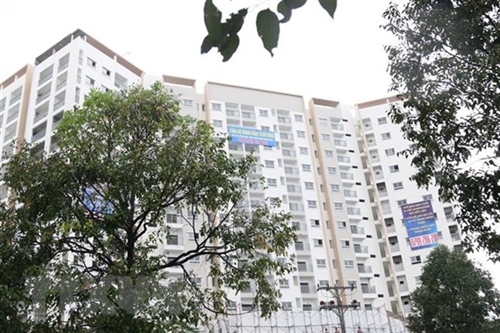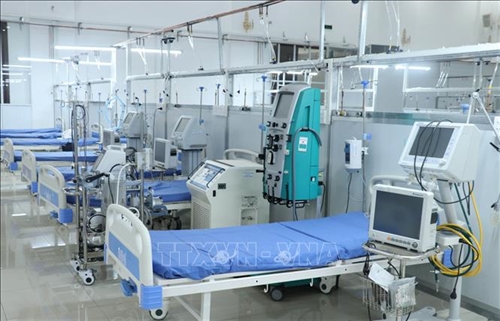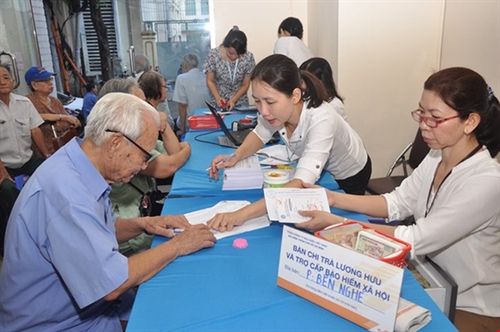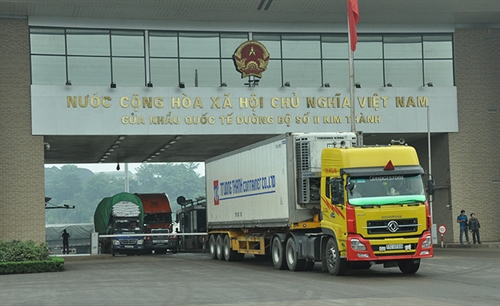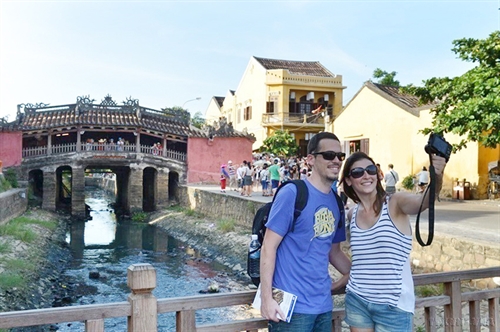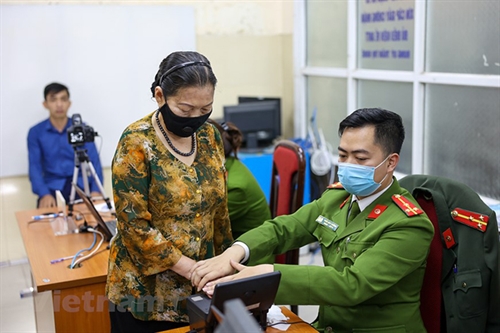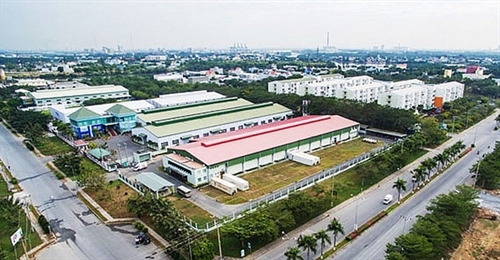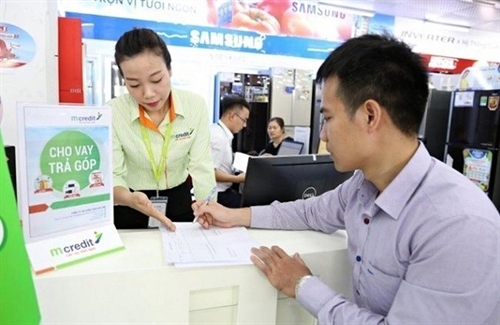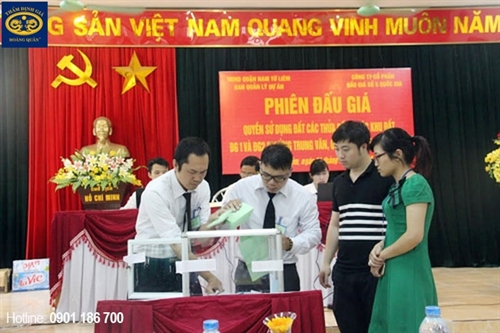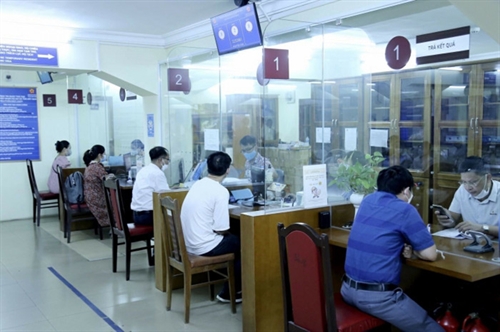The Ministry of Construction (MOC) has recently publicized a draft amended Law on Real Estate Business that is expected to help develop the real estate market in a transparent and sustainable manner.
Designed to replace the 2014 Law on Real Estate Business, the 99-article draft law revises regulations on real estate transactions, clearly provides types of tradable real estate, and adds new provisions on real estate exchanges, real estate brokerage services and the information system on housing and real estate market.
Real estate purchase, sale, transfer and lease
In order to better guarantee the lawful and legitimate rights and interests of customers and investors, the draft law revises the current Law’s provision on making deposit before signing contracts on purchase and sale or lease-purchase of future real estates.
Article 26.3 of the draft specifies that project owners would be allowed to receive from customers wishing to purchase or lease-purchase future houses a deposit not exceeding 5 percent of the value of the future houses only after having commenced the construction of the houses. Noteworthily, payment for real estate transactions must be made via credit institutions lawfully operating in Vietnam.
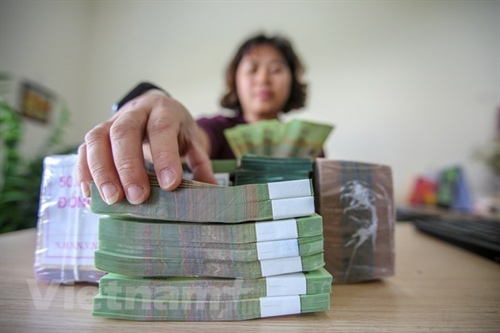 |
| Payment for real estate transactions must be made via credit institutions lawfully operating in Vietnam__Photo: vietnamplus.vn |
Meanwhile, the draft proposes more relaxed conditions for transfer of the whole or part of real estate projects.
Accordingly, a real estate project owner may transfer the whole or part of its/his/her project to others without having to wait until it/he/she is granted a land use rights certificate for such project or such part of the project if meeting the following two conditions: (i) having obtained a decision on land allocation or land lease for implementation of the real estate project, issued by a competent state agency and (ii) having fulfilled the project’s land-related financial obligations, i.e., having fully paid into the state budget the payable land-use levy or land rental as well as land-related tax, charge and fee amounts, with regard to the to-be-transferred project or part of the project.
Unlike the 2014 Law which specifies that the transferee must be a real estate enterprise, the draft just requires the transferee to operate in appropriate business lines, be financially capable and commit to continue implementing the project, ensuring the set implementation schedule.
Types of tradable real estate
Under Article 5 of the draft law, types of tradable real estate include: ready-built houses and future houses; ready-built and future construction works, including civil works, condotels, tourist villas and officetels; houses and construction works being public property permitted to be traded under competent state agencies’ decisions.
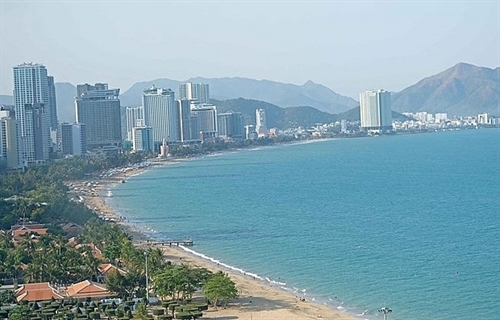 |
| Condotels, tourist villas and officetels would be tradable real estate products if the draft law is passed__Photo: VNA |
Land use rights could also be considered a type of tradable real estate in case the transfer, lease and sublease thereof are permitted under law. Particularly for land use rights under real estate projects, the transfer, lease and sub-lease of land use rights would only be permitted for land with technical infrastructure.
Real estate exchanges and real estate brokerage services
As required in Articles 61 and 62 of the draft, organizations and individuals providing real estate exchange services would have to set up enterprises under the law on enterprises and meet conditions for establishment and operation registration of real estate exchanges in accordance with the law on real estate business.
Noteworthily, the MOC sets out two options regarding real estate transactions that must be conducted via real estate exchanges.
Under the first option, transactions of sale and lease-purchase of future houses and future construction works between real estate project owners and customers; and transfer, lease and sublease of the rights to use land with technical infrastructure under real estate projects must be conducted via real estate exchanges.
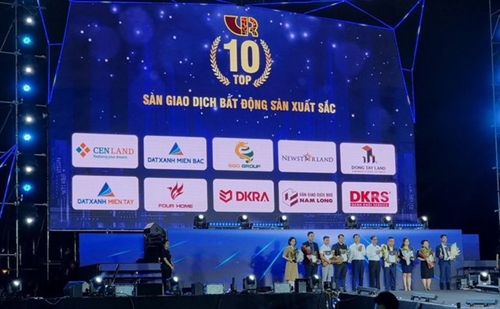 |
| The 2022 Vietnam Real Easte Brokerage Day was held on June 24-25 in Quang Ninh province__Photo: VGP |
As per the second option, transactions involving tradable real estates which have yet to be granted certificates of land use rights and ownership of houses and other land-attached assets must be processed through real estate exchanges.
Regarding conditions for provision of the real estate brokerage service, the draft requires real estate brokers to possess practice certificates and be subject to the management of a real estate exchange.
Information system on housing and real estate market
Under the draft, an information system on housing and real estate market would be built uniformly across the country with a view to improving the effect and effectiveness of state management of housing and the real estate market. Such information system would be connected to and share data with databases of ministries, sectors and localities and provide information on housing and the real estate market for organizations and individuals.
The information system on housing and real estate market is composed of a database on housing and the real estate market, information technology infrastructure, and software for management, operation and exploitation of information about housing and the real estate market.
Real estate businesses would have to disclose real estate information on their websites, at head offices of real estate project management units; at real estate exchanges; and on the information system on housing and the real estate market.
The draft is scheduled to be passed by the National Assembly this October.- (VLLF)
